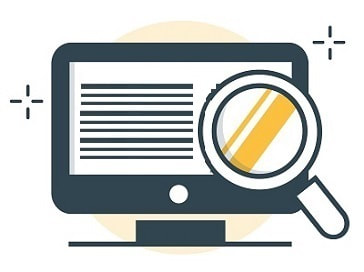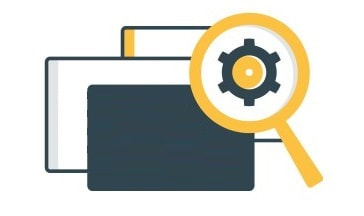Common Shareholder Numbers (CSN) - The Definitive New Zealand Guide
Our guide explains CSNs and other relevant terms such as HN and FIN when it comes to brokers and share registries. In addition, highlight must-know facts and list frequently asked questions.
Updated 7 June 2024
Summary
To explain what you need to know about CSNs, our guide covers:
Warning: Keep all CSN, HN and FIN numbers confidential. This historical Stuff.co.nz article recounts a story about how your details can be stolen and used to steal your investments.
Summary
- Common Shareholder Numbers (CSNs) are crucial for anyone holding securities in New Zealand. However, the share registry websites are very confusing and can lead to uncertainty when dealing with brokers or registrars.
- Don't have a CSN but own shares? You may not have a CSN and instead have a Holder Number (HN) for every shareholding you have. If you want to amalgamate and merge your various investments into a single portfolio of holdings, you can contact a broker to transfer your individual shares onto one CSN. The benefit of having a single CSN is that you can see your entire portfolio at once, whether online or on a monthly statement. In addition, the relevant tax information for those securities is also on one document.
To explain what you need to know about CSNs, our guide covers:
Warning: Keep all CSN, HN and FIN numbers confidential. This historical Stuff.co.nz article recounts a story about how your details can be stolen and used to steal your investments.
What is a Common Shareholder Number (CSN)?
- A CSN is a 9-digit number on many formal NZX documents (examples of CSNs can be found here and here). As seen in the documents, the CSN/HN will be at the top of the documents.
- All individuals who buy securities listed on the New Zealand Stock Exchange (NZX) through a broker will be assigned and allotted a CSN, which will be your identification number used throughout all NZX-listed securities. All New Zealand share registries will keep that single wide number as your holder number.
- Your CSN is how the New Zealand registries recognise you as the owner of the investments in question. Some investments will be tied to your CSN, but some may not.
- It is possible to have multiple CSNs. Therefore, some investments may be under one CSN number, while others may be under another CSN.
Know This: Depending on the brokerage platform, you may not be issued a CSN. Many platforms will only require your CSN to transfer investments from one platform to another (for example, Sharesies to InvestNow). If you want to obtain a CSN, you will likely need to trade with a broker to obtain a CSN (and pay a brokerage fee for doing so as well as making a minimum investment). Once you have a CSN, you can transfer your shares using the CSN. In some cases where your holdings are small in value, it may be more cost-effective to sell your shares outright to avoid transfer fees and the costs of obtaining a CSN.
What is a Holder Number (HN)?
- You will have been issued a holder number if you hold shares but do not have a CSN. This number identifies you as the owner of a certain portfolio of securities/shares. You can have multiple holder numbers for multiple different batches of shares.
- A holder number is allotted to you when you own shares you didn't purchase through a broker. In contrast, brokers will issue you a CSN when you buy shares through them if you don't already have one.
- The holder number will typically be unique to either Computershare or Link Market Services (the two main share registry companies in New Zealand). However, it's possible to have more than one holder number if you have different shares held with different registries (for example, 100 shares of Fletcher Building registered under Computershare and 100 shares of Mainfreight held under Link Market Services).
- You will have a unique holder number from each registry as long as you don’t have a CSN that can be used to aggregate all of these holdings. To amalgamate and merge these into a single portfolio of holdings, you can contact a broker to transfer these onto a CSN.
- Each share registry will issue its own Holder Numbers. However, because companies in New Zealand can choose to issue their shares through only one of the above registries, you might have more than one HN if you hold investments across both registries.
- Either your CSN or HN will show up on your official brokerage/registrar statements you may receive.
What is a Faster Identification Number (FIN)?
- A Faster Identification Number is a four-digit number, similar to a PIN used when buying something on a credit card. Your FIN is unique to your specific CSN or HN and is key in identifying you as the owner of your account.
- A FIN will be automatically created once you purchase your first shares on a specific CSN or HN. After that, the CSN/HN information is typically dispatched/sent to you physically through a statement in the post. After that, you'll need your FIN number whenever you want to buy, sell or change securities with your dealer/broker. For example, in the "sell order" image, the link here shows a broker's request to input a FIN number to make changes to stocks held by the CSN account holder.
- It’s important to store your FIN number somewhere safe. This crucial number shouldn’t be used or shared in any other instance apart from talking to your broker to buy/sell shares.
Must-Know Facts about CSNs
1. Your CSN, HN and FIN are all identification numbers.
2. Keep a record of ALL documentation regarding CSNs, HNs and FINs.
- Your Common Shareholder Number (CSN), Holder Number (HN) and Faster Identification Number (FIN) are all numbers that show that you are the true owner of the securities/shares in question.
- Without this evidence, anyone could theoretically move or sell your shares. Therefore, these three numbers must be kept safe and secure.
2. Keep a record of ALL documentation regarding CSNs, HNs and FINs.
- Because you can have multiple CSNs and HNs with various registries, it’s extremely important to document and record all formal letters and statements to ensure you don’t lose track of your investments.
- It can be a good idea to scan these documents and save them somewhere secure on the cloud or to save the paper statements in a secure place.
Frequently Asked Questions
Do I need to use my CSN/FIN/HN if I use brokerage platforms like Sharesies and Hatch?
It will depend on the specific platform. For example, some platforms (such as Jarden Direct or ASB Securities) will deal with CSNs and FINs, while others may only need HNs. Check out the relevant platform’s FAQ or customer support to find out more.
Does everyone who owns shares have a CSN?
Not necessarily. If you have only dealt with an investment platform (Sharesies, for example) and not a broker or share registry, you may only have an HN.
Is it possible to have more than one CSN?
Yes, one person can have multiple CSNs. The two main share registries in New Zealand (Link and Computershare) will issue their CSNs for shares you hold under their registry.
I can’t find my FIN. What do I do?
Call the registry involved, quote your CSN or HN and ask them to issue you a new FIN. The registry will likely post a statement with the new FIN to the physical address they have on file rather than email it or give it over the phone due to security concerns.
I have multiple CSNs but keeping track of them is a pain. Can I amalgamate them into one?
Yes. Your broker can merge them into one CSN (and one FIN to remember). The benefit of having a single CSN is that you can see your entire portfolio at once, whether online or on a monthly statement. In addition, the relevant tax information for those securities is also on one document.
Related Guides




